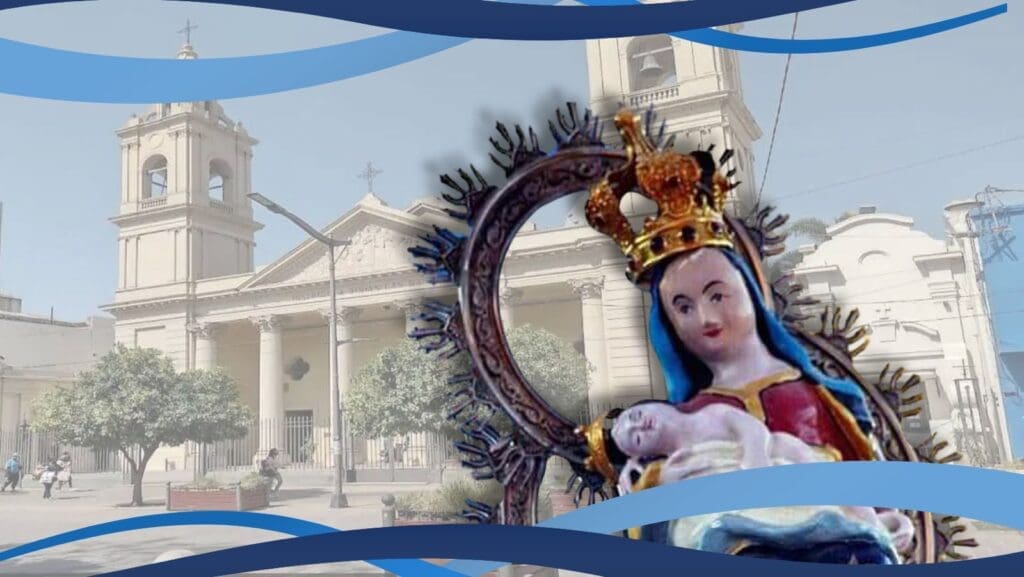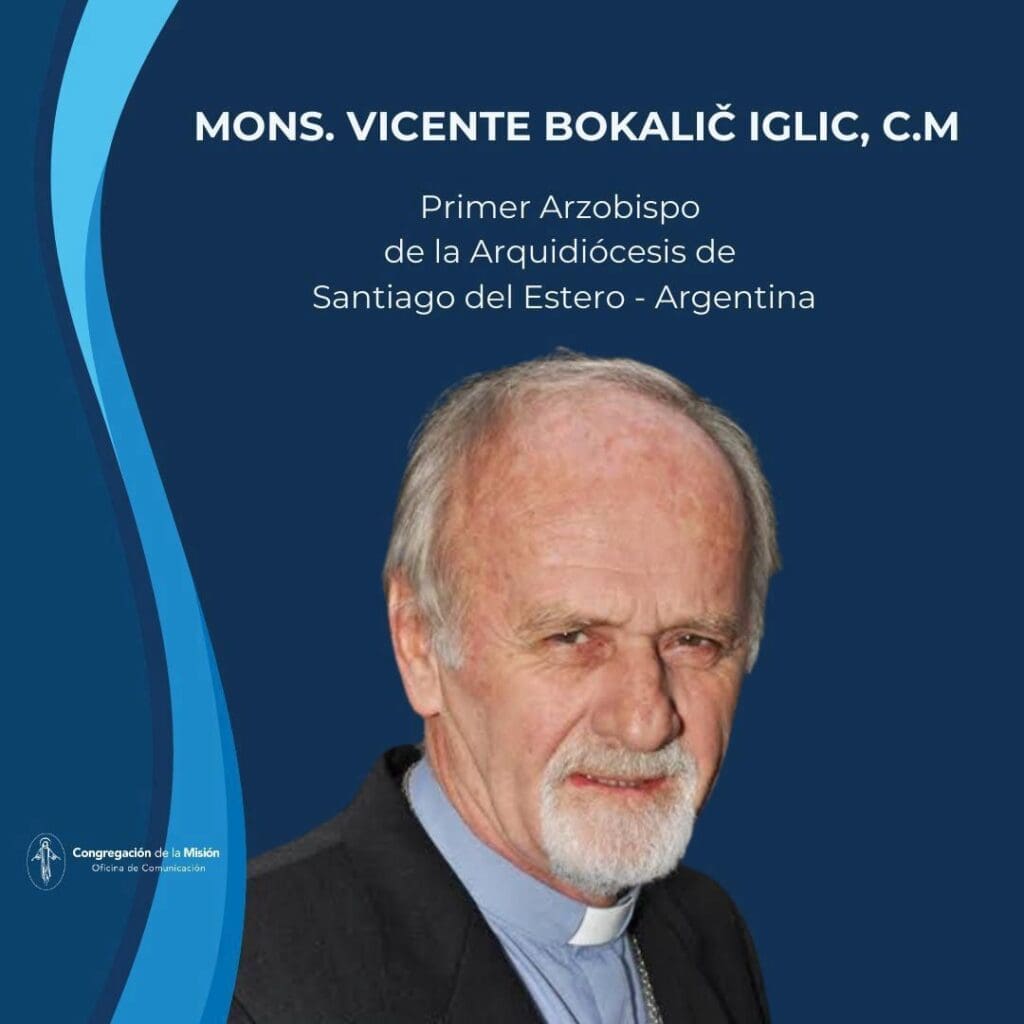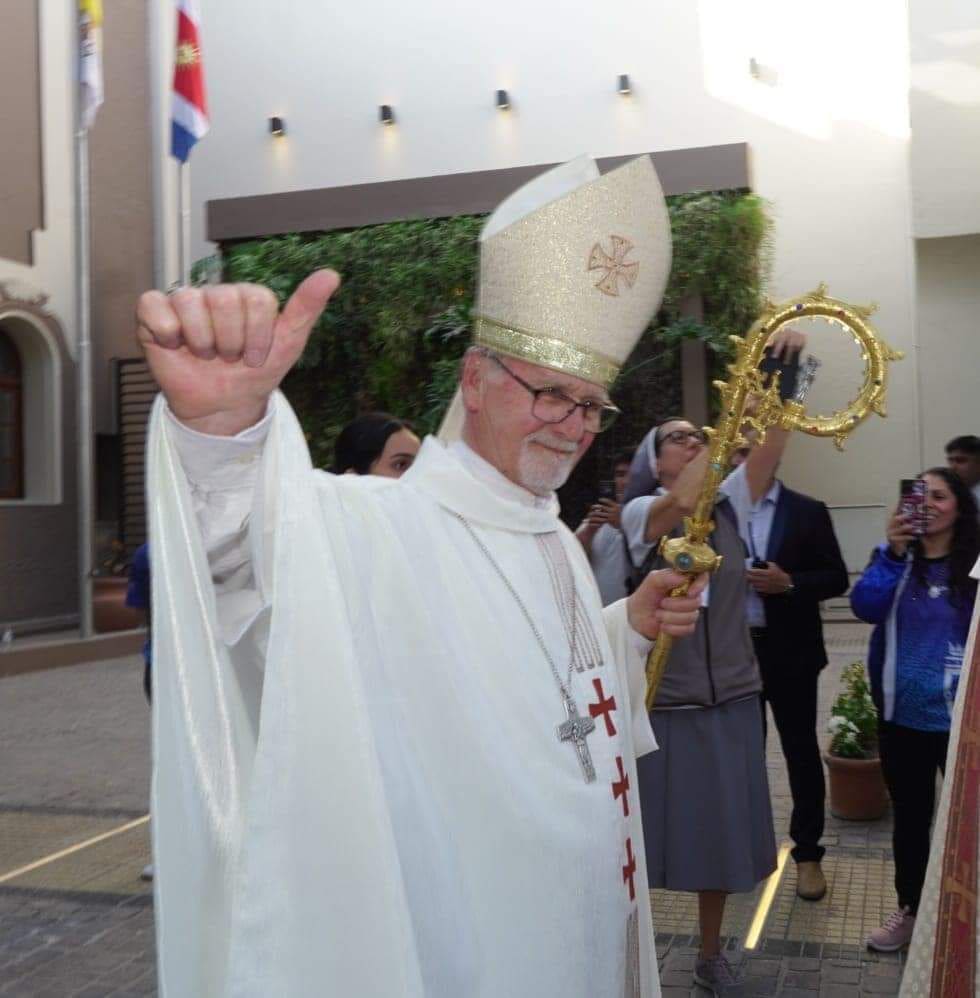On a historic day for the Argentinean Church, Santiago del Estero was officially elevated to Archdiocese and seat of the Primacy of the Argentine Republic. In the homily, they reflected on the importance of this event for the Catholic community and recalled the example of Jesus in his universal mission of healing and inclusion. Read more about the emotional celebration and Santiago’s new role as the country’s ‘Mother of Dioceses.

Our Provident God the Father has his plans and his ways. To our Good God who is Father, Son and Holy Spirit we give thanks for giving us this historic day for our beloved Santiago del Estero, so full of joy, of encounters, of memory of the founding events of our Church and of renewed hope looking towards the future.
From here, Mother of Cities and Mother of Dioceses, we wish to express our heartfelt gratitude to His Holiness, Pope Francis – who is currently on a very extensive trip to Asia and Oceania – who, after a serious and profound study and having received the advice of the corresponding Dicastery, which has taken several years, has decided to elevate our diocese to Archdiocese and Primate of the Republic of Argentina.
The Gospel proclaimed tells us of the healing of a deaf-mute man in the territory of the Decapolis (a group of ten cities, a confederation of independent cities east of the Jordan). These were distant lands, lands of “foreigners”, lands of pagans, despised by the Jews of that time. For that Judaism, the pagan world was lost to God. But Jesus goes beyond these principles and goes further: he touches the deaf and dumb. Jesus thus announces his universal mission, a mission that transcends the limits that we men generally fabricate. Jesus unfolds his saving power, making the Kingdom of grace and life operative in the midst of the poor, represented in this case by the deaf-mute. In the midst of a world dominated by disease, misery and marginalisation, a world enslaved, but in need of redemption and liberation, Jesus goes forward and goes to them. This is something habitual and programmatic in his life, since he is the God who goes out to meet each one of his children.
Perhaps we can find a similarity with our celebration, in which the Pope’s Bull is made effective, by which the Primate See is transferred from the Capital of the Argentine Republic to a distant place, far inland as we usually say. The Church also, urged by the example and style of Jesus, permanently feels the call to go out to the frontiers, leaving comfortable places, of a certain comfort, of greater opportunities, and to go into more distant places, we can even say avoided, where the meaning of life and the threatened faith are deepened. These were Nazareth, Tyre and Sidon, Galilee.
Jesus touches and heals this deaf and dumb man who is presented to him by his countrymen. This deafness is a figure of the deafness of the people of Israel who do not want to listen to their God. The Messiah is sent to heal, to “open” (that means Effatah) the ears, loosen the tongue and enlighten the heart and mind. This is the kind of deafness that is born of the human heart. Jesus touches the sick as a sign of closeness, compassion and mercy.
of the people of Israel who do not want to listen to their God. The Messiah is sent to heal, to “open” (that means Effatah) the ears, loosen the tongue and enlighten the heart and mind. This is the kind of deafness that is born of the human heart. Jesus touches the sick as a sign of closeness, compassion and mercy.
Healing is more than a physical, bodily defect, it is a symbol, the unwillingness to listen. To listen in order to speak. Continuing with this symbolism, today we could affirm that the “deaf and dumb” continue to exist in the incommunicado. Incommunication is one of the miseries of our times, which seems to be accentuated as a direct result of the progress of civilisation. And it is precisely at home that we first learn to communicate. With our parents and siblings. And it is precisely in the family that the maternal figure appears, as a promoter of meeting, dialogue, listening, attention, and care.
In the joint communication with the Archbishop of Buenos Aires on 22 July we said that the Church of Santiago becomes the Mother of the Dioceses of the Homeland. Mother of Cities, Mother of Dioceses. It would seem that Santiago is marked by this “maternal character”.
“A Church that is a mother walks the path of tenderness. She knows the language of so much wisdom of caresses, of silence, of the gaze that knows compassion, that knows silence. And likewise, a soul, a person who lives this belonging to the Church, knowing that she is also a mother, must follow the same path: a person who is docile, tender, smiling and full of love. As Church “we are marked by our character of favouring “the care of life, of all life, but especially of the most delicate and in need of assistance. To be a mother is to know how to listen, to gather at a table, to recreate communion after distances, to create a climate of harmony and respect, to always wait for the child who is far away, to know how to be close to them in suffering and illness. Knowing how to respect without invading. To put down roots and give wings. The maternal character of the Church brings us closer to joy, to encounter, to communion, to learn to be and to live fraternity, to be always ready to welcome an “unforeseen” brother, to take care of the pain of others, to sacrifice and to put off one’s own to make the other happy, to be present, how important it is to be present for a child!
In this sense, today’s event commits us to increase the spirit of hospitality: “open the door and enter my home”. It characterises the people of Santiago de Compostela with open doors. Like our people who rejoice at the visit of others, and especially of the children who return to their homes. In a country wounded by disagreements, resentment and rifts, we are called to contribute to fraternal coexistence where everyone has a place. Where no one is left out. And where we suffer for the absence of others, because we are all invited to the Banquet.
We received the honorary title of “Primate Church” because it was here that evangelisation began and the first ecclesiastical structure, a Diocese, was created. Simultaneously with the foundation of the city, the first missionaries arrived with a deep desire to transmit the Good News of Salvation to the native peoples of our land. Looking back, we must recognise the great religious orders – still present today – that laid the foundations of the Church.
Just as in 1500 the Good News of the Kingdom of Jesus came, in this happy hour for our Church we are called to “first-come first” in the Mission. “Primerear”: please excuse this neologism. The evangelising community experiences that the Lord has taken the initiative, has made it first in love (cf. 1 Jn 4:10); and so it knows how to go ahead, to take the initiative without fear, to go out to meet, to seek those who are far away and to go to the crossroads to invite those who are excluded. She lives an inexhaustible desire to offer mercy, the fruit of having experienced the Father’s infinite mercy and its diffusive power. Let us dare a little more to go first”. EG 24 To be aware that we are born of the Mission must be our north mission as a permanent way of life.
 In the school of Jesus “To be first” is to be servant of all. To be first is not to be superior, better and above others. The first we are talking about is the initial, the nascent. Nascent: what a beautiful word. Pope Francis said “In the first centuries of the Church one thing was very clear: the Church, being the mother of Christians, while making Christians, is also made by them”.
In the school of Jesus “To be first” is to be servant of all. To be first is not to be superior, better and above others. The first we are talking about is the initial, the nascent. Nascent: what a beautiful word. Pope Francis said “In the first centuries of the Church one thing was very clear: the Church, being the mother of Christians, while making Christians, is also made by them”.
Whoever wants to be first must be last, and the attitude of service that best reflects this reality of Jesus and of the servant Church is to bend down to wash the feet of the brothers and sisters like Jesus at the hour of the Passion. These are all icons that motivate us in the face of this gift that Francis has given us. As a Primate Church because of our origins, we are called to build a Mother Church, Samaritan, servant, close and cordial, hospitable, always with open doors for all, creating bridges of encounter, listening and dialogue, a church in which we learn the language of forgiveness to restore broken bonds, promoting all initiatives that dignify the brothers and sisters. Together with sister Churches, may we be signs of hope in the midst of so much discouragement, tiredness and loss of meaning. It is the responsibility of our time: from our condition as a Church that is first and foremost in service and a love that is made effective through works of charity.
MONS. VICENTE BOKALIČ IGLIC, C.M
First Archbishop of the Archdiocese of
Santiago del Estero – Argentina

